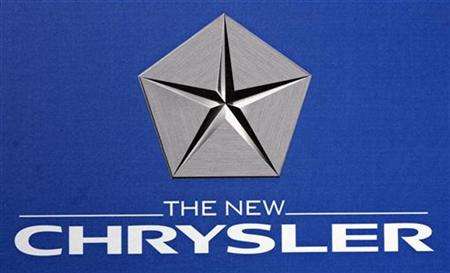Does Plastech Ruling Presage Chrysler's Chapter 11?
Judge Phillip Shefflerly has ruled that Chrysler does not get to strip parts supplier Plastech's factories of tooling, effectively forcing Chrysler to continue buying parts from Plastech. Shefferly's conceded that his decision may take a bite out of Chrysler's short term bottom line. But he decided that Chrysler has "numerous options" on the table, whereas Plastech would be staring at eight plant closures in the next nine months (were Chrysler to seize the tools). Shefferly's decision scrupulously avoids any indication on which party is "in the right." No word on the validity of (former Chrysler honcho-staffed) auditing firm BKK's findings of Plastech malfeasance. Nor any mention of the several bailout agreements, in which Chrysler forked-over cash for the rights to its Plastech tooling. So, is Plastech lucky or good? In any case, the ball's back in Chrysler's court, with big, expensive choices looming. Which begs an even more important question. With bankruptcy rulings favoring "successful reorganization" over financial commitments, how long before other suppliers take Chrysler down bankruptcy lane? By the same token, now that Cerberus management is crowing that it "doesn't have to be heroes with Chrysler," how long before Cerberus pulls the trigger on a Chrysler filing?
More by Edward Niedermeyer


































Comments
Join the conversation
Guy-- If that is the case, and it has happened for years on top of years, generation of product after generation of product-- why have the suppliers not adapted and shortened contract length to safeguard against a manufacturer's ever-changing part specifications? I just can't wrap my head around the concept that what's yours is not yours if it's in someone else's best interests that they keep it after you let them use it when they're working for you.
First: I told you so. Second: Property rights advocates need to slowly undo the knots in their small clothes. This is not about property rights. It is about two persons with rights in the same property. If we were talking about the family farm and the evil sub-prime lender, the conflict of rights could be the same, but your emotional reaction might be different. Adjudicating the priority of competing claims is one of the basic tasks of our civil judicial system. The judge, after being briefed as to the facts and the law in this case, has rendered a decision. Interested parties who disagree with his decision may appeal it -- in due course. Non parties, including me and you, only have something worthwhile to say, if they know the facts and the law.
I don't know who is wrong or right in this case. But I do know that things weren't always this way in Chrysler's relationship with it's suppliers: http://www-personal.umich.edu/~afuah/cases/case3.html All this went out the window after Daimler took over.
There are two things that will put the brakes on any rash of bankruptcy filings: 1. If a company that is not plausibly bankrupt tries to file under Chapter 11 in order to gain a tactical advantage in some dispute, the bankruptcy judge will be pissed off. 2. The owners of a plausibly bankrupt company that files for reorganization under Chapter 11 stand to lose their equity because the creditors will usually walk away with a good chunk, if not most or all, of the equity ownership in a company under reorganization. So even if the company manages to exit bankruptcy and go on to prosper, the original owners (read: shareholders) don't benefit from this. For this reason, the shareholders are usually against the management calling for bankruptcy. A good example of this sort of expropriation can be seen in England, where the government just took over the failing bank Northern Rock -- a nationalization to forestall bankrutpcy. Employees continue to get paid; some will be layed off when an orderly downsizing is put together in the months ahead. Despositors still have access to their money. Creditors and bondholders are still paid. But the shareholders would be lucky to get pennies for shares that, until last week, were still trading for 90p each -- well off their highs, but still a real amount of equity. If the new management team installed by the government restores the bank to health, the government will hold an IPO and keep the proceeds. Now, if the owners are also the managers, they may be slightly more inclined to file, because even if they lose their equity (which by that point is not worth much), they will likely get to keep their day jobs (as managers), which at least comes with a healthy paycheck.